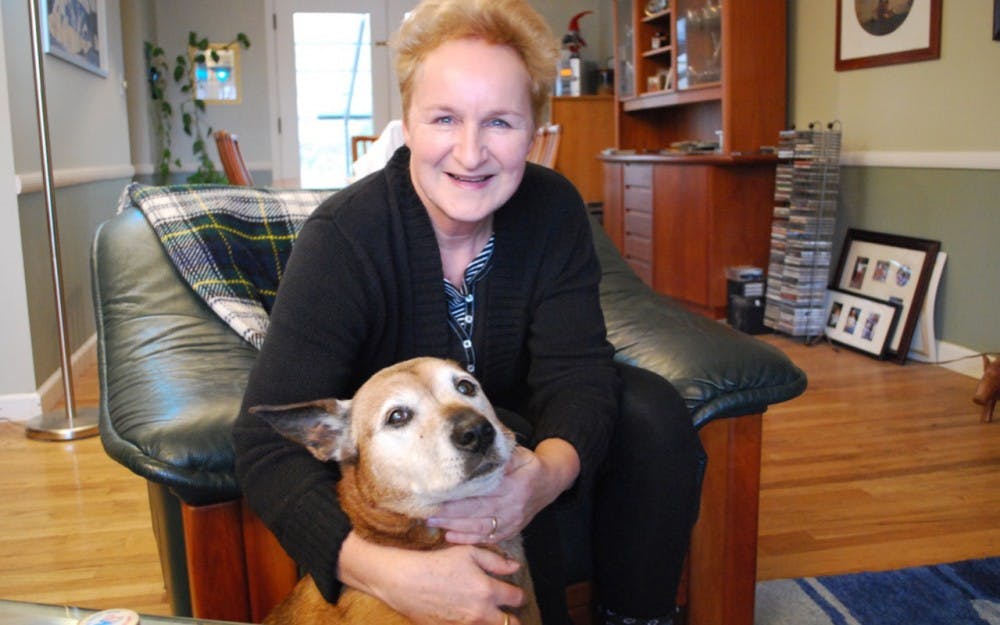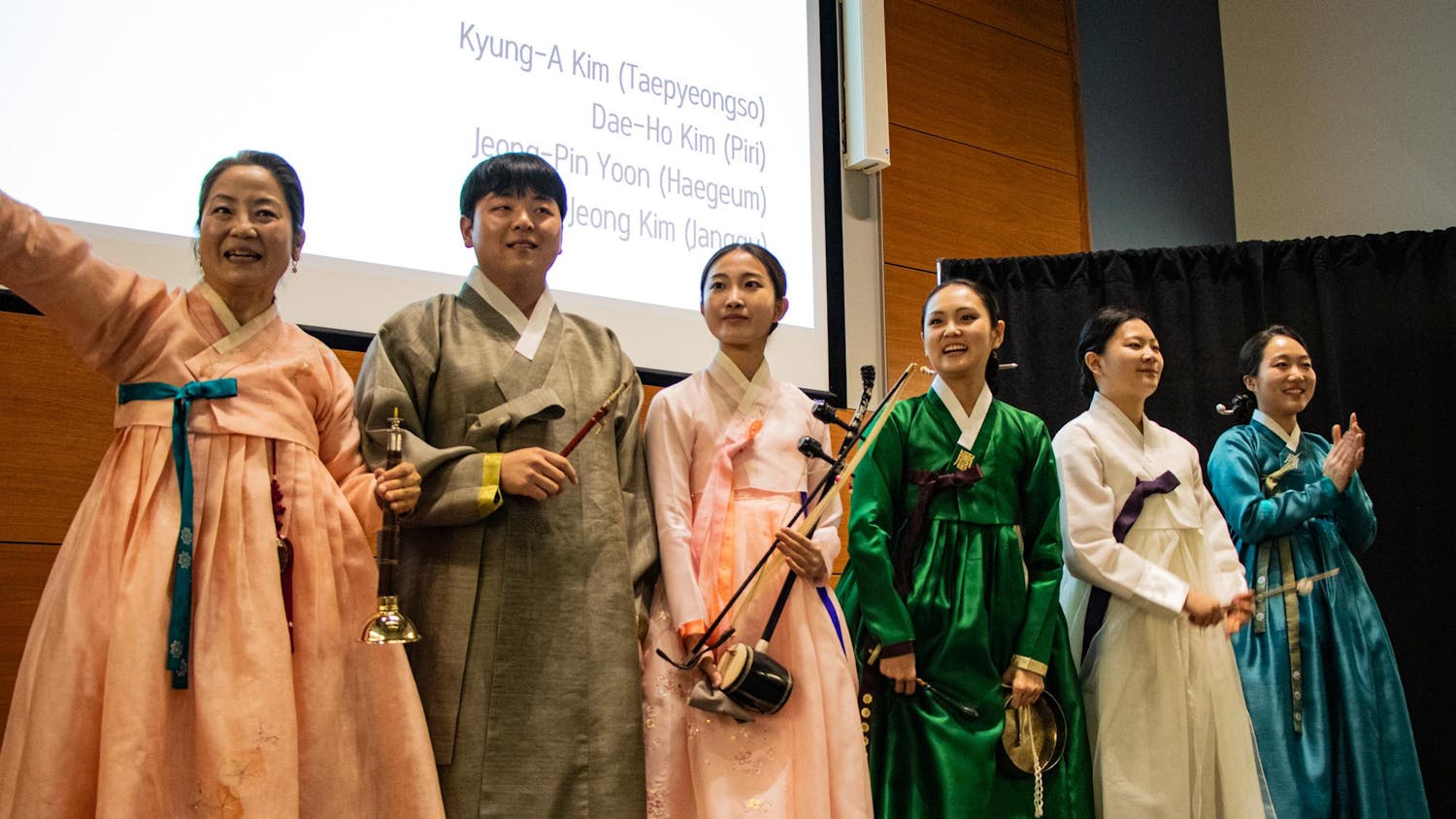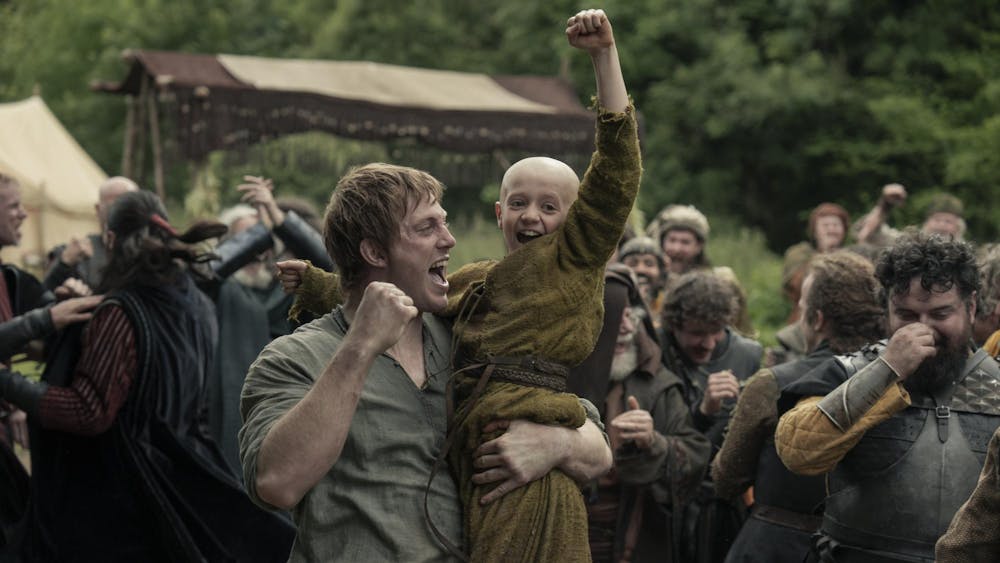Annette Oppenlander, treasurer of the Bloomington Writer’s Guild, has published four works that weave historical realities with a fictional twist. Her fifth, a novel titled “Surviving the Fatherland,” was released to the public March 15.
The novel is based on stories told by her parents, who were children living in Germany during World War II, and follows protagonists Lilly and Günter as they navigate life in the Third Reich. Oppenlander said the piece took her 15 years to complete.
“Growing up, I’d heard bits and pieces of survival stories, quick references, or I’d watch my parents nod at each other in silent understanding,” Oppenlander said. “As my interest in history grew, my curiosity grew with it. So in 2002, I asked my parents to share their memories.”
She spent several weeks visiting them in Germany and recording their stories. From there evolved the tale spanning 13 years from 1940-1953 and dealing with the issues related to family, love and betrayal through the eyes of the children who endured the conflict.
Oppenlander said she remembers one afternoon when they were in the basement while her mother ironed, and they discussed her relationship with her mother. She still has the recordings.
“It’s hard for me to hear my mother’s voice — she passed away in 2004,” Oppenlander said. “My mother always insisted that my father was the better storyteller. And, while I agree that his activities were quite adventurous, my mother’s quieter side offered a lot of depth. And so I think the two characters balance each other out nicely.”
The initial goals of the interviews and writing differ slightly from what the story became, Oppenlander said. What started as a project to help her children remember their grandparents evolved into a story to enlighten the public on the plight of children during one of history’s most prolific struggles.
“I think older teens can certainly read it and it may even be beneficial as a historical text, but the theme and setting are mature and my protagonists are a boy and girl,” Oppenlander said. “I always write my stories within historical settings — there is something about the past that appeals to me.”
Oppenlander said she first became interested in writing while living in the woods in Washington during the 1990s.
“I was always a voracious reader and had a vivid imagination, but at some point I got inspired to write stories,” Oppenlander said. “My first attempt was a children’s chapter book story about a hedgehog going on adventures. I didn’t know anything about craft or the publishing industry and my kids were still small and needed my attention.”
Recording her parents stories was the inspirational push she needed to write and realize how satisfying writing was, Oppenlander said.
Over the years, Oppenlander said she has attended workshops for anywhere from one hour to one week and been a part of critique groups for eight years.
Following the publishing of this novel, Oppenlander will be presenting at the Historical Novel Society annual conference and having writing workshops at Ivy Tech Community College and middle and high schools.
This novel in particular has taught her a lot she did not previously know about her family’s personal past.
“When I began this project I hadn’t realized how much ‘dirt’ was hidden in my family’s past,” Oppenlander said. “But once we started talking I knew there was a lot going on. I heard the emotion in my mother’s voice when she spoke about Vati, her stay in the East when she stole the wallet and ring to force her foster family to send her home.”
Overall, learning the stories was an emotionally charged experience that took a lot of discipline, but it was worth it to tell the story the way it needed to be told.
“I want people to understand what life was like for ordinary people and especially children during that time,” Oppenlander said. “The generation of war children just took the abuse and after the war ended, everyone was in a hurry to move on. Nobody gave those kids a second thought.”






